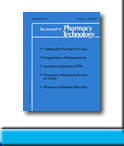 |
 |
IMPACT OF CLOZAPINE
VERSUS HALOPERIDOL ON CONDITIONAL RELEASE TIME AND RATES OF REVOCATION IN A
FORENSIC PSYCHIATRIC POPULATION
Steven C Stoner,
Jessica S Wehner Lea, Beth M Dubisar, Kathleen Roebuck-Colgan, and David M
Vlach
To request full article click here.
BACKGROUND: Clozapine remains the cornerstone of treatment for treatment refractory schizophrenia. Clozapine has been shown to improve quality of life and cognitive functioning and to reduce hospital days in psychiatric patients. The impact of clozapine in a forensic population of psychiatric patients has not been studied.
METHODS: This study is a naturalistic, retrospective database analysis of forensic patients hospitalized at the Northwest Missouri Psychiatric Rehabilitation Center from January 1, 1990 to August 1, 1999 who were treated with clozapine or haloperidol. Patients were either court ordered for hospitalization as having been found not guilty by reason of insanity or as incompetent to proceed to trial.
RESULTS: Data from 84 patients (69 male, 15 female) were included in the analysis. The primary Axis I diagnoses were substance abuse (n = 61) and schizophrenia (n = 46). Patients had been treated with haloperidol (n = 78) and clozapine (n = 21), and some had received each agent as monotherapy during their course of treatment (n = 15). Assault (n = 22), armed criminal action (n = 18), and burglary (n = 18) were the primary forensic reasons for admission. Of those eligible to obtain a conditional release, 33% of haloperidol-treated patients and 38% of clozapine-treated patients obtained their conditional release on those medications. Haloperidol-treated patients were more likely to have their conditional release revoked (58.8%) versus those treated with clozapine (0%). Clozapine-treated patients were also more likely to stay on conditional release for longer periods of time. Global Assessment of Functioning (GAF) scores improved in both treatment groups; however, of 15 patients converted from haloperidol to clozapine, 93% (n = 14) saw improvements in GAF scores.
CONCLUSIONS: Clozapine and haloperidol effectively reduce psychosis and aggression. In our study, clozapine-treated patients were more likely to obtain a conditional release and stayed on conditional release for longer periods of time. Although the need exists to study this patient population more closely from a longitudinal standpoint, one may suspect that these findings represent a potential decrease in healthcare costs for the treatment of forensic psychiatric patients.
J Pharm Technol 2002;18:182-6.
To request full article click here.
|
|
|
||
|

